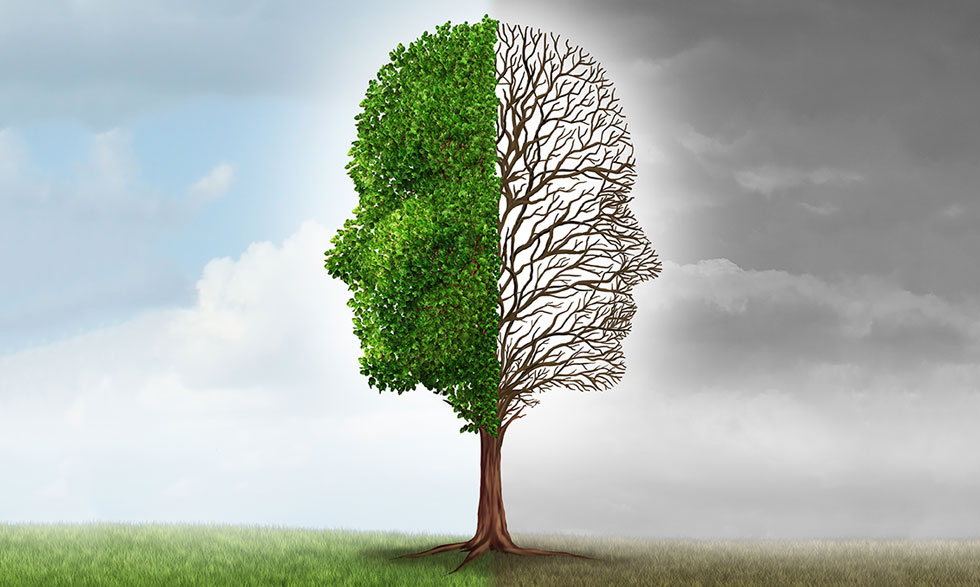Health Topics

Highs and lows: Understanding bipolar disorder
When you have bipolar disorder, you experience frequent mood swings—from extreme lows to extreme highs. Sometimes you feel both at the same time.
You may brush off these changes as "just being moody." But, in reality, you or someone you know could have a serious mental illness.
Bipolar disorder can ruin relationships with spouses, family members, friends, or co-workers. People with the disorder may also think about hurting themselves.
While bipolar disorder is a lifelong illness, medication and talk therapy can help people manage it and lead healthy lives.
Who does it affect?
Bipolar disorder affects 1% to 2% of the U.S. population. About 10% to 15% of people with bipolar disorder have a high risk of suicide.
What are the symptoms?
There are four basic types of bipolar disorder. All of them involve clear changes in mood, energy, and activity levels. The moods are known as manic and depressive episodes.
Bipolar disorder is a lifelong disease, but medication and talk therapy can help people manage it.
What is a depressive episode?
People with bipolar disorder experience severe depression or have low energy for several days or weeks. This is known as a depressive episode. Other symptoms include sleeping too much or too little, worrying a lot, forgetting things, and feeling sad or empty. In severe episodes, suicidal thoughts or behavior may arise. Sufferers may also experience psychotic symptoms, such as delusions.
What is a manic episode?
During a manic episode, people with bipolar disorder find it hard to focus at home, school, or work. They may feel like their mind is racing. People may also feel jumpy or "high," talk fast, and do risky things. Psychotic symptoms are common with manic episodes, and may lead to a misdiagnosis of schizophrenia.
How is bipolar disorder diagnosed?
If you think you or a loved one may have bipolar disorder, speak to your doctor or a mental health care provider. The provider will review your medical history and ask you about your physical and mental health.
How is bipolar disorder treated?
A psychiatrist (doctor who specializes in treating mental illness) can prescribe medication to help you manage your moods and feel like yourself again.
Medications include mood stabilizers, antidepressants, and sleep medicines.
Talk therapy also helps many people with bipolar disorder. You and your provider will decide what treatment plan works best for you.
If you or someone you know is having thoughts about suicide, call the National Suicide Prevention Line at 1-800-273-8255. It is open 24 hours, 7 days a week. Calls are private.







